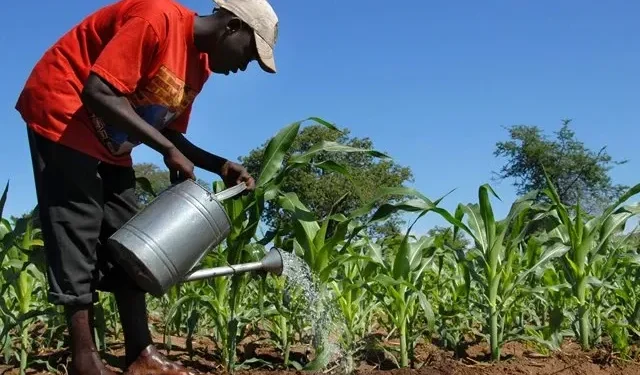GAWU questions sustainability of 630,000 promised jobs in phase II of PFJ programme
In light of these concerns, the General Secretary urged the government to outline measures that would prevent the recurrence of challenges experienced with the first phase of the program.
The General Agriculture Workers Union (GAWU) has expressed criticism towards the government’s second phase of the Planting for Food and Jobs (PFJ) program, which aims to provide employment opportunities for over 1.2 million farmers.
The launch of this second phase introduced an estimated annual average of 210,000 new farm-related jobs, along with an additional annual average of 420,000 jobs within the agricultural value chains.
GAWU’s concerns stem from their perception that the government’s efforts to increase employment in the agricultural sector are not practical, citing the previous phase of the PFJ program launched in 2017. The initial phase had promised more than 750,000 jobs, but according to the Union, the jobs were not sustainable and were informal in nature.
These jobs reportedly lacked proper salary deductions, including contributions to the Social Security and National Insurance Trust (SSNIT) and income tax.
Edward Kareweh, the General Secretary of GAWU, emphasized that the focus should not be on celebrating policy intentions but rather on the actual outcomes and results achieved. The Union expressed skepticism about the new increase in job targets for the second phase of the PFJ program, as they had seen similar promises in the past that did not materialize into tangible job opportunities.
Mr Kareweh also called for the government to prioritize alternative irrigation systems to reduce dependency on rain for crop growth. He mentioned the One Village, One Dam policy, which was intended to improve water accessibility for farmers, but some of the dams have reportedly dried up.
He also criticized the status of certain large-scale projects, like the Pwalugu multi-purpose dam, which faced delays and lack of progress.
In light of these concerns, the General Secretary urged the government to outline measures that would prevent the recurrence of challenges experienced with the first phase of the program.
The first module of the PFJ program was launched in 2017 with the aim of enhancing food security, making selected crops readily available in the market, and generating employment opportunities.
The second phase, launched on August 28, 2023, aims to build on the achievements of the initial phase and focuses on modernizing agriculture through the development of commodity value chains, private sector involvement, and job creation.
Source: Norvanreports


